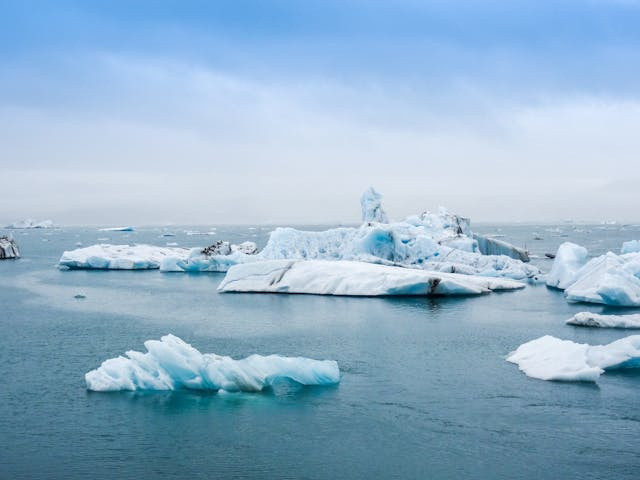
For decades, scientists have raised alarms about the Arctic warming at an alarming pace, with melting sea ice, shifting ecosystems, and intensified weather extremes threatening global stability. Now, a new study from researchers at UC Riverside offers a nuanced perspective, suggesting that a slowdown in a major ocean current might slightly mitigate this rapid warming - though the reprieve is limited and far from a comprehensive solution.
Published in the Proceedings of the National Academy of Sciences, the study titled "Impacts of Atlantic meridional overturning circulation weakening on Arctic amplification,"reveals that the projected 10°C rise in Arctic temperatures by the century’s end could be tempered by 2°C due to a weakening of the Atlantic Meridional Overturning Circulation (AMOC). The AMOC, a key component of Earth’s climate, circulates warm water from the tropics to northern latitudes. Its gradual slowing is expected to reduce heat transport to the Arctic, potentially delaying some of the extreme warming impacts.
The AMOC’s Role in Arctic Heat Dynamics
"The AMOC is a critical component of our climate system because it moves heat around the globe," said Yu-Chi Lee, UCR graduate student and lead author of the study. "We found that its weakening reduces the amount of heat reaching the Arctic, which slows down the rate of warming."
While this slowdown offers a glimmer of optimism, the researchers caution that Arctic ecosystems remain under grave threat. Polar bears face diminishing hunting grounds as sea ice vanishes, while exposed, darker ocean surfaces absorb more sunlight- further accelerating warming through a feedback loop known as the albedo effect.
The AMOC slowdown could ripple beyond the Arctic, leading to disruptions in the global climate system. One potential concern is a southward shift of the Intertropical Convergence Zone, a key rain belt in the tropics.
The study also highlights a common misconception about Arctic ice and sea levels: while melting sea ice doesn’t directly cause sea level rise, land-based ice and ocean thermal expansion do. The AMOC’s role in sea level rise is minor but nonetheless contributes to significant global climate shifts.
A Complex Climate Picture
Wei Liu, a UC Riverside associate professor and co-author of the study, stressed the intricacies of AMOC’s influence. "The AMOC slowdown may offer some temporary relief in the Arctic, but this is not a simple good-news story," Liu said. "The overall impact on ecosystems and weather patterns, both in the Arctic and globally, could still be severe."
Using a coupled climate model, the research team examined interactions between ocean currents, the atmosphere, and land ice. Simulations isolated the AMOC’s impact by comparing scenarios with and without an AMOC slowdown under rising greenhouse gases, revealing that the current’s weakening would only moderately alleviate Arctic warming.
Uncertain Future for AMOC
Scientists have limited data on AMOC trends, with direct monitoring only starting in 2004. While some research suggests a potential AMOC collapse by 2100, others debate its stability.
"Our simulations allowed us to clearly see how much of the future Arctic warming is tied to the AMOC slowdown," Lee said, according to SciDaily. "Even though the slowdown reduces warming by a couple of degrees, the overall effects on Arctic ecosystems and the global climate system remain severe."
This study serves as a reminder of climate change’s interconnected nature. With Arctic temperatures rising three to four times faster than the global average, even small shifts in ocean circulation have planetary ramifications. While the AMOC’s weakening offers a partial relief, it underscores the urgent need for coordinated climate action to address both the Arctic’s future and the broader global climate system.
Related Article: Arctic: Marine Life Migrates According to Moonlight in Dark Arctic
© 2025 NatureWorldNews.com All rights reserved. Do not reproduce without permission.





